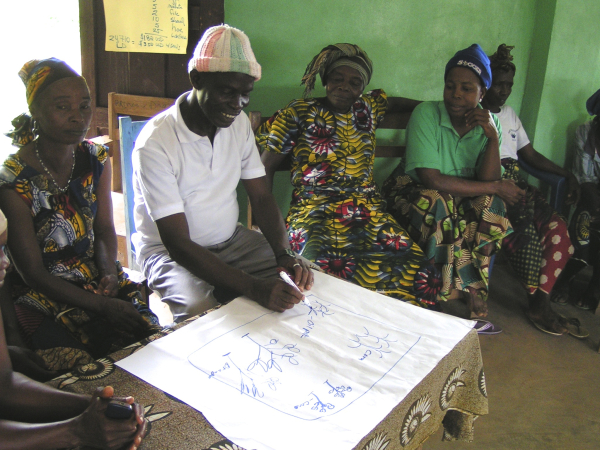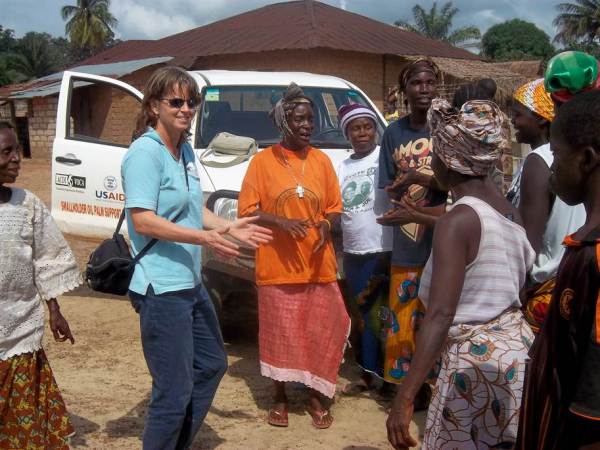
Volunteer Post
A Forester in Liberia
Kevyn Wightman, volunteer in Liberia with the Liberia Smallholder Oil Palm Support (SHOPS) program, funded by USAID
Before
In preparing for my third Winrock International trip (in 2007 I traveled to Banda Ache, Indonesia and Kyrgyzstan), I read other volunteers’ blogs from around the world, watched YouTube videos about the perpetrators of Liberia’s recent civil war atrocities and the 2012 conviction proceedings of former president Charles Taylor for aiding and abetting war crimes and crimes against humanity. I read from various news sites about the current president Ellen Johnson Sirleaf’s 2011 shared Nobel Peace Prize, the BBC radio coverage on the hardships of extreme poverty as well as economic and political summaries from UNDP, and Transparency International and Liberian diaspora NGOs.
Armed with this information and pretty vivid media images, I was eager to meet the field staff and contribute some of my own experiences from working in 6 tropical countries and 3 temperate ones during the past 25 years. As expected, this visit once again reminded me that you cannot believe everything you read and what you see or experience also only reveals part of whole story.

During
Liberians have experienced both the worst and best of “human nature.” During my short visit, they shared with me their songs, jokes and big plans for the future—like those at the Nimba County Community College. Built only two years ago, and under the direction of a team of Liberians many of whom received advanced degrees in education and business from US universities, their dedicated staff now train over 1,000 students in vocational skills from nursing to forestry to mining. Their library is the largest in size in the country and more books are arriving!
My assignment included meeting over 350 rural farmers (the majority were women, but workshop attendance was open to all) in their villages to discuss their farming systems and constraints. We explored ways that agroforestry practices such as cover crops, and combining sun crops (mostly annual food staples) with shade crops (mostly such as cacao and coffee) could be incorporated into their fields. They will be planting oil palm seedlings of the improved tenera variety during the 2013 rainy season.


And yes, we always discussed how and why to plant more trees for the ever-growing demand for construction & furniture wood. Adding multi-purpose trees and fruit trees to their agricultural land and villages can also make oil palm systems more productive. Luckily germplasm for Liberia’s diverse tree species is still available. Libera still harbors large tracks of closed canopy forest that have been logged, but not yet destroyed or converted to intensive agriculture. Now is the time to be collecting and planting its seeds for future use!
After
Traveling, meeting and working with new people, sharing ideas, finding common language and values can open new doors to finding creative and useful pathways towards “sustainable development,” a term found in any project jargon and encompassing economic, social and environmental aspects. I will continue my contact with the many wonderful people I met in Liberia and contribute to an understanding of this relatively small, but richly endowed nation via my own blog begun during this trip:
As Winrock staffperson Demetria Arvanitis points out in her blog published by the Huffington Post on Celebrating International Volunteer Day, when you give, you often receive even more in return.
